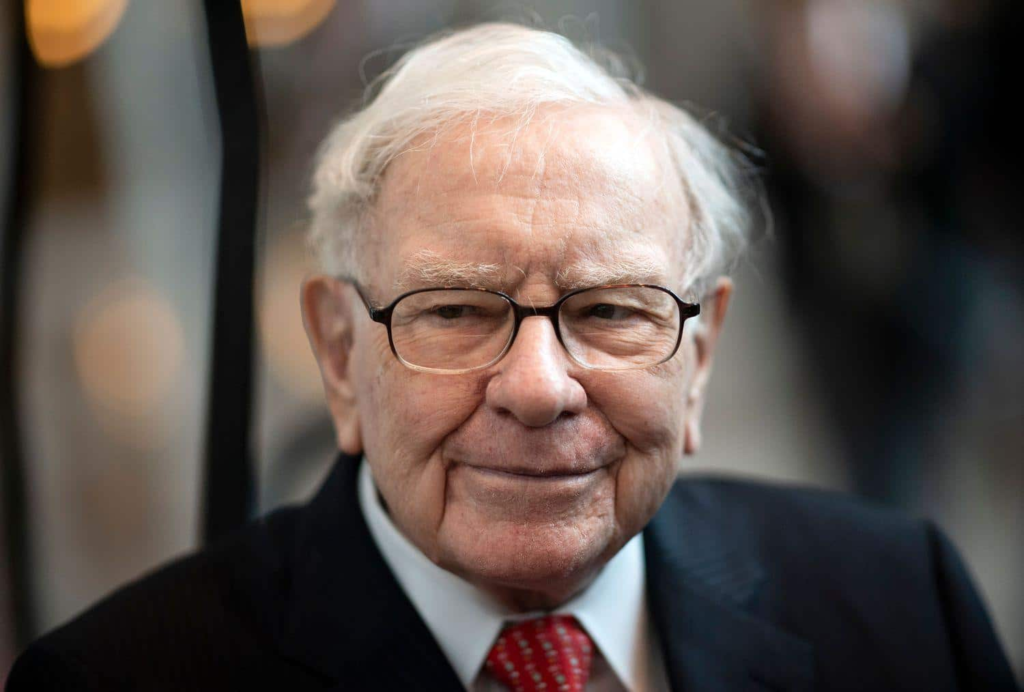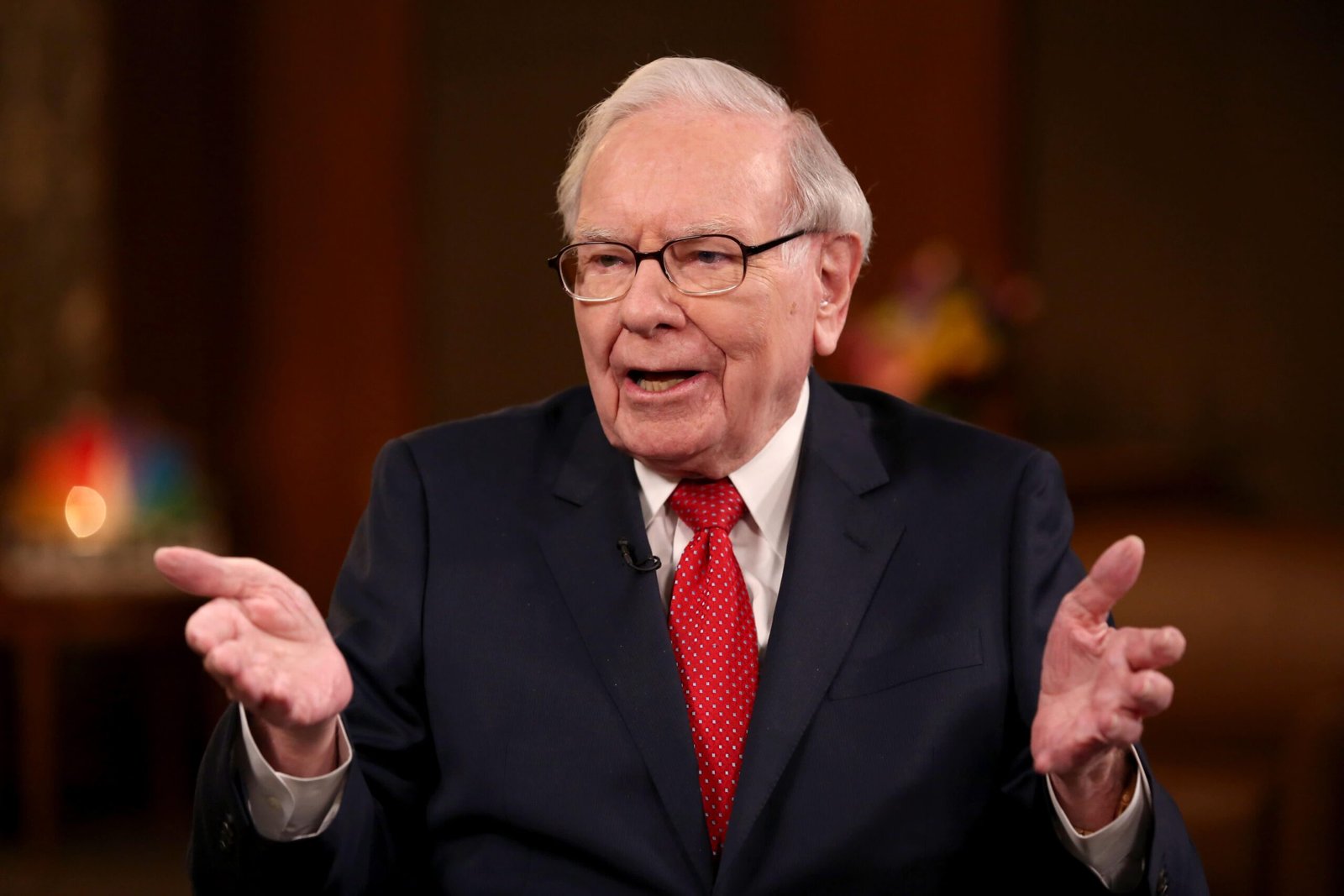Warren Buffett is a household name in the world of business and investing. He has built an unparalleled reputation as one of the most successful investors in history. Through decades of calculated decision-making and strategic investments, Buffett has amassed immense wealth, making him one of the richest individuals on the planet. However, Buffett’s influence extends far beyond his financial success. He is also a dedicated philanthropist, using his fortune to drive meaningful change in the world.
While many know Buffett for his sharp business acumen, his legacy may ultimately be defined by his generosity and commitment to making the world a better place. His approach to philanthropy is groundbreaking, setting a powerful example for other wealthy individuals. Buffett’s belief in using wealth to address global challenges showcases a different kind of success—one measured not in dollars but in the lives improved by his efforts.
Warren Buffett’s Philanthropic Efforts: The Giving Pledge
One of the most remarkable aspects of Buffett’s philanthropy is his pledge to give away 99% of his wealth. The majority of his fortune is destined for the Bill & Melinda Gates Foundation, an organization focused on tackling pressing global issues such as poverty, healthcare, and education.
Buffett’s commitment is not merely theoretical—he has already donated billions of dollars to charitable causes. His philosophy is rooted in the belief that extreme wealth should be used for the greater good rather than hoarded.
Buffett took his philanthropic vision a step further by co-founding The Giving Pledge alongside Bill Gates. This initiative encourages billionaires to commit at least half of their wealth to charitable causes, fostering a culture of giving among the world’s richest individuals. Many influential figures, including Mark Zuckerberg, Elon Musk, and MacKenzie Scott, have signed onto the pledge, expanding the impact of Buffett’s vision.
Buffett’s contributions have led to tangible results worldwide. His donations have funded critical healthcare initiatives, including vaccine distribution and disease prevention programs in developing countries. He has also supported educational institutions and programs aimed at improving access to quality education for underserved communities. His generosity has extended to supporting sustainable agriculture, helping farmers in Africa increase their crop yields and improve food security.
Beyond financial contributions, Buffett uses his influence to advocate for philanthropy. He actively promotes the idea that wealth should be a tool for positive change rather than just a measure of personal success. By inspiring other wealthy individuals to give back, he has amplified the impact of his philanthropic mission.
Warren Buffett’s Early Life and Formative Years
Warren Edward Buffett was born in Omaha, Nebraska, in 1930. His entrepreneurial spirit emerged at an early age. Unlike most children, who spent their free time playing, young Buffett was always looking for ways to make money. At just six years old, he bought packs of gum and resold them for a profit. This early business sense foreshadowed his future success.
As he grew older, Buffett took on various money-making ventures, including delivering newspapers and selling golf balls. One of his most creative ventures involved setting up pinball machines in local barbershops, allowing him to generate passive income.
Buffett’s academic journey began at the University of Pennsylvania, but he later transferred to the University of Nebraska, where he completed his undergraduate degree. The turning point in his education came when he enrolled at Columbia University to study under Benjamin Graham, the father of value investing. Graham’s principles had a profound impact on Buffett, shaping his investment philosophy and guiding his future business decisions.
Business Career and Achievements of Warren Buffett

Warren Buffett’s professional career began at Buffett-Falk & Co., but his most significant success came through Berkshire Hathaway. Initially a struggling textile company, Berkshire Hathaway was transformed under Buffett’s leadership into a global investment conglomerate.
Through smart acquisitions and strategic investments, Buffett turned Berkshire Hathaway into one of the most valuable companies in the world. His investment portfolio includes stakes in industry giants such as Coca-Cola, Apple, and American Express. One of his most notable investments was in GEICO, a car insurance company that became a cornerstone of Berkshire Hathaway’s success.
Buffett’s keen investment choices and consistent returns earned him the nickname “The Oracle of Omaha.” His annual letters to Berkshire Hathaway shareholders are widely read, offering insights into his investment strategies and broader business philosophies.
Unlike many business magnates, Buffett is known for his ethical approach to investing. He values honesty, integrity, and long-term growth over short-term gains. His reputation for transparency and straightforwardness has earned him widespread respect in the financial world.
Warren Buffett’s Investment Philosophy
Buffett’s investment strategy is rooted in value investing, a concept he learned from Benjamin Graham. This method involves identifying undervalued companies with strong fundamentals and investing in them for the long term.
Buffett believes in buying high-quality businesses at reasonable prices rather than chasing market trends. He looks for companies with strong leadership, low debt, and consistent profitability. His famous quote encapsulates his strategy: “It’s far better to buy a wonderful company at a fair price than a fair company at a wonderful price.”
Despite being one of the wealthiest individuals in the world, Buffett leads a remarkably frugal lifestyle. He still lives in the modest Omaha home he purchased in 1958 and drives an unassuming car. Unlike many billionaires, he avoids extravagant spending, reinforcing his belief that wealth should serve a greater purpose.
Warren Buffett’s Insights and Legacy

Warren Buffett’s influence extends beyond investing. He has been vocal about important societal issues, including tax reform and healthcare. He believes that the wealthy should contribute more in taxes to promote economic fairness.
Buffett also holds strong views on inheritance. He has stated that he will leave his children “enough to do anything, but not enough to do nothing.” He wants them to find their own success rather than relying on inherited wealth.
As a philanthropist, business leader, and advocate for responsible wealth management, Buffett’s legacy is multifaceted. His contributions to both the financial world and charitable causes will leave a lasting impact for generations to come.
Conclusion
Warren Buffett is not only a business icon but also a role model for responsible wealth management and philanthropy. His disciplined investment approach has shaped modern investing, and his commitment to giving back has inspired many to use their wealth for good.
Buffett’s ability to balance financial success with philanthropic responsibility makes him a unique figure in history. He has demonstrated that true success is not just about accumulating wealth but about using it to create a better world.
For aspiring entrepreneurs, investors, and philanthropists, Buffett’s life offers invaluable lessons. His story proves that wealth, when used wisely, can be a powerful force for positive change. His legacy will be remembered not just for his financial achievements but for the lives he has touched through his generosity.




